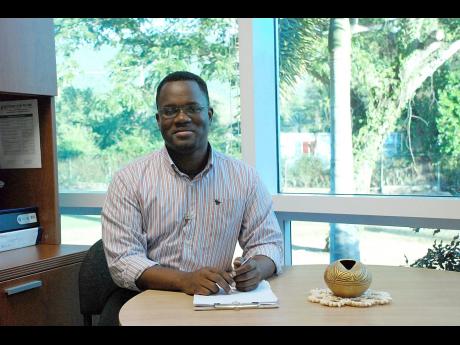Preserving memories - Significance of archives and records management
Every day, in our daily living, business transactions, and social interactions, we create memories. In so doing, we try to document aspects of our lives that we consider valuable. The work email, lunch receipt, that perfect selfie, the business contract, office correspondence, the love letter, or the membership card all form part of a person's activities that inform their memories.
The ability to remember, and forget, is an asset we so easily take for granted these days. Yet, the success of our professional and personal lives is dependent on what we choose to remember and how we use and manage our memories.
Managing these records is done by the Archivist and Records Manager. Created as part of a transaction, a relationship, or an interaction, records are fixed representations of the occurrences between two or more parties. An unsigned contract is not a record of a business partnership, neither is a well-written but undelivered love letter.
For a record to be of informational and evidential value, it must have gone through some process that underpins the transaction.
Records are, therefore, the 'stuff' of memories, which, like all aspects of life and work, need to be managed.
Records managers are primarily found in organisations having specific responsibility for the records that are still active in the business process or have been retained for specified periods of time to meet legal, financial, or organisational policy requirements and use.
The archivist focuses on selecting, acquiring, organising, preserving, and making accessible records of historical value. Records come in a variety of forms, from paper-based formats such as files, documents, photographs, maps, plans, to digitally created materials such as e-mails, reports, and drawings.
Three-dimensional objects or artefacts can also be records. These could range from textile or cloth materials to wooden sculpted or metallic objects.
Records, like memories, always have some 'story' to tell, from particular experiences to greater contexts, which not only shape how the record was created, but also offers details that go beyond its initial purpose/use. Records are kept because there are meanings inherent in the documents/items that constrain us from throwing it away.
FOUNDATION OF SOCIETY
Records are the foundation of every society. Whether from a literate culture, with its early writings or sketches, or from an oral tradition - with its stories, songs and rhythms - records give information how an individual, a family, a business perceives itself and operates.
Records provide tangible proof of the experiences of the past, give an appreciation for the way things are currently, and influence the way we will do things in the future. Where there are no records, there are ruptures to the cultural, economic, social, and political well-being of a person and a society. This happens so very often in our technologically advanced world, where one's 'stolen' identity results in loss of rights, with financial, legal, and even cultural consequences.
A beautiful project emerged out of the sad circumstances triggered by the HIV/AIDS pandemic in South Africa in the early 2000s. The high rates of infection and death left millions of children vulnerable and orphaned, as many were now being disenfranchised, disconnected from family heritage, and suffering from identity issues. To counter this, the Children Emergency Relief International (CERI) launched the 'Memory Box Project', which trained caregivers to encourage parents to create a box containing letters, objects, and other items that they would want to leave behind for their children.
According to Roddy Bray's Guide to Cape Town, "The Memory Box allows parents with HIV/ AIDS to come to terms with death and leave a personal legacy for their orphaned children. This helps the children grow up with a sense of identity and a personal legacy from their parents to help them overcome their own confusion and loss." CERI reported that the Memory Box Project helped over 5,800 children and young people overcome the cultural and socio-political ruptures that a loss of personal and community memory creates.
In post-colonial societies like the Caribbean, record keeping and memory are vital for the cohesiveness of society. As people came to the Caribbean, our cultural retentions and expressions are based on what has been documented about us, and what we collectively have remembered and forgotten.
Archival theorist Elisabeth Kaplan maintains, "The archival record doesn't just happen. It is created by individuals and organisations, and used, in turn, to support their values and missions, all of which comprises a process that is certainly not politically and culturally neutral." Records are not just useful for academic research and decision-making, but more important, to appreciate where one is coming from. The efficiency of governance rests on the effective management of its records. There can be no corruption and mismanagement if a company has strong records management.
Records, moreover, lift the confidence of a person, organisation and nation. A people's documented experiences shape the way its nations are envisioned. As our Caribbean nations grow older, it is vital that Caribbean peoples take active responsibility in reconstructing their identities by documenting and capturing our present-day experiences and records.
Our cultural forms, from music to festivals, dress and rhythms, all have informational and historical values that must be documented and preserved. Caribbean archivists and records managers are crucial to this process as archival work is critical in shaping history. They are major players in the business of identity construction and identity politics.
When Caribbean archivists and records managers perform their professional roles well, the memory of the society is further enriched and our unique contribution to humanity's legacy is preserved.
- Stanley Griffin, PhD, is a lecturer in the Department of Library and iInformation Studies in the Faculty of Humanities and Education at the University of the West Indies, Mona. This article is one in a series that seeks to promote and highlight the impact of the arts and humanities on the individual's personal development and career path. Please send feedback to fhe@uwimona.edu.jm.

